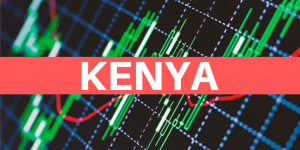 Tourism is the largest contributor to the country’s forex earnings. In 2019 alone, this industry earned Sh163.6 billion, up from Sh157.4 billion in 2018. But tourism isn’t the only source of income in Kenya. Agriculture and horticulture contribute to the country’s economy, as well.
Tourism is the largest contributor to the country’s forex earnings. In 2019 alone, this industry earned Sh163.6 billion, up from Sh157.4 billion in 2018. But tourism isn’t the only source of income in Kenya. Agriculture and horticulture contribute to the country’s economy, as well.
Tourism
Foreign currency earnings from tourism in Kenya are vital to the country’s economy. Despite the COVID-19 pandemic, the country’s tourism industry is rebounding after the disease. While the number of visitors to Kenya is still down from pre-pandemic levels, local travel is increasing and prices have dropped. The government expects tourism to contribute about $1.5 billion to the country’s GDP this year.
Tea
The dollar is the official hard currency for the Mombasa Tea Auction and could affect earnings for tea exporters in Kenya. To understand the link between tea and Forex, a study was conducted in Kenya, where smallholder tea factory owners sell their produce at auction.
Coffee
Kenya’s economy is a major source of foreign exchange earnings. The tea industry alone contributes more than one third of the country’s foreign exchange earnings. Kenya also exports flowers, with more than 130,000 tons of flowers shipped overseas each year. The country’s coffee exports are also a major source of foreign exchange. In 2018, coffee earned Kenya EUR220 million in Forex earnings.
Horticulture
While research into the horticultural sector in Kenya has been dominated by scholars of the Global Value Chains/Global Production Networks school, it is important to recognize the role of Kenya’s domestic political economy. The Kenyan state has played a greater role in the success of the horticultural sector than is generally acknowledged, and this role has fused with other transnational factors.
Retail forex trading
Kenya has been a strong economy for the past seven years, and this has translated to a growing retail forex trading market. Currently, over 100,000 residents are involved in the forex trading business. However, because this market is still relatively new by international standards, there are some issues that need to be addressed. One of these is fraud. To avoid this, it is important to choose a reputable broker. Additionally, traders should learn the ins and outs of trading currency pairs and practice on a demo system before investing their capital.
Leverage
There are a number of ways to gain leverage in forex trading in Kenya. Leverage is the percentage of profits that you can earn from trading one currency against another. For example, if you’re based in the United States, you could use leverage of 100:1. But if you’re based in Kenya, leverage of one:1 will be too high.
Capital requirement
As the forex market in Kenya continues to grow, the government has taken measures to ensure that the markets are safe. One such measure is the implementation of capital requirements for forex brokers. These requirements vary between different broker types, but in general they range between 30 and 50 million shillings. The capital requirement for forex earnings in Kenya is relatively low compared to other countries.
Regulation
In Kenya, forex earnings are regulated by law. It is legal for a Kenyan to purchase and sell foreign currency without restrictions, but exceeding US$10,000 must be declared to the Central Bank of Kenya (CBK). As of January 2010, the currency has a negative balance policy, meaning that a broker cannot lose more than the amount of money invested, and any bonuses are banned. In addition, a Kenyan bank can only purchase up to US$10,000 in foreign currency with an authorised dealer and the amount must be supported by documents.
